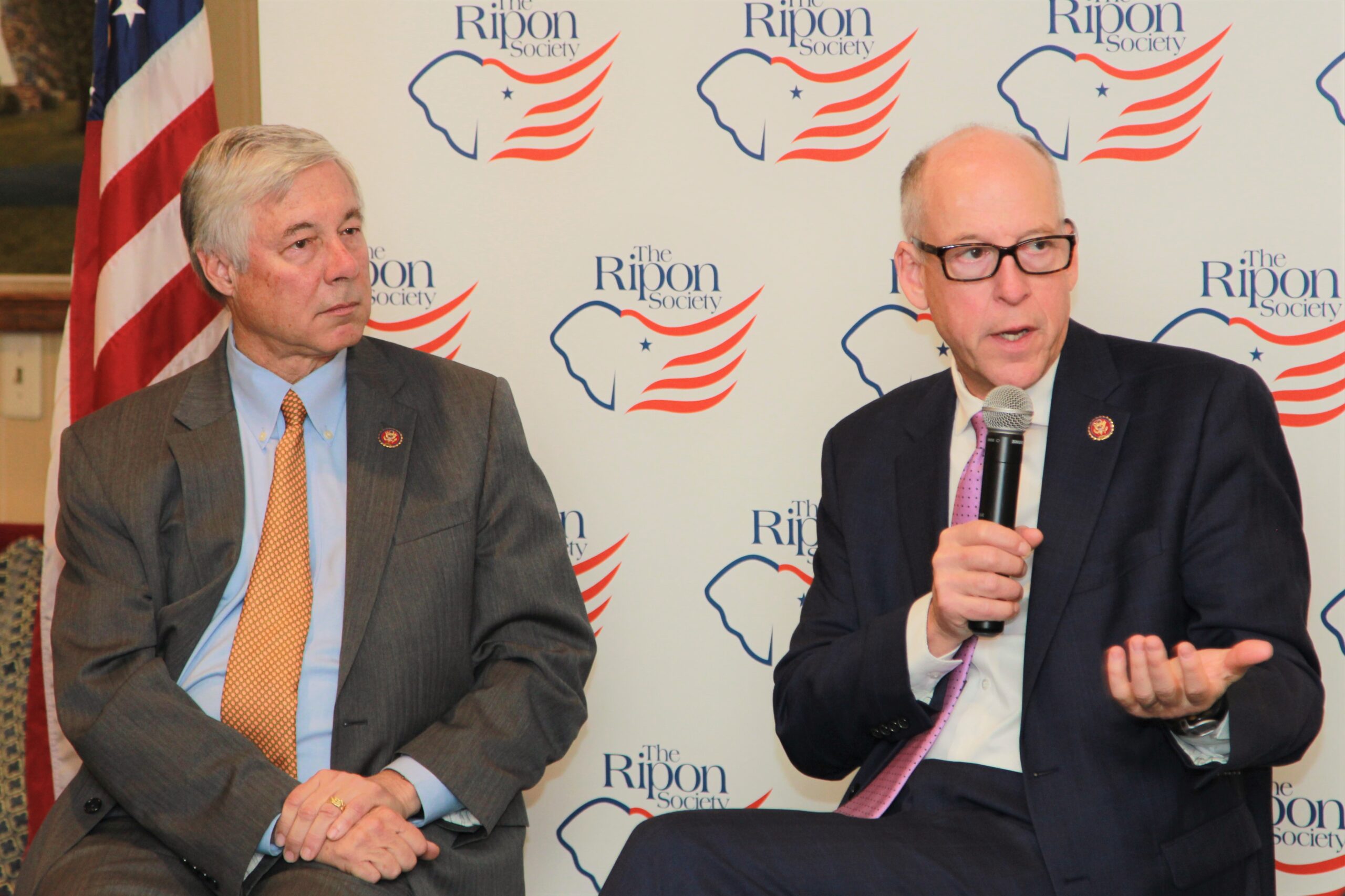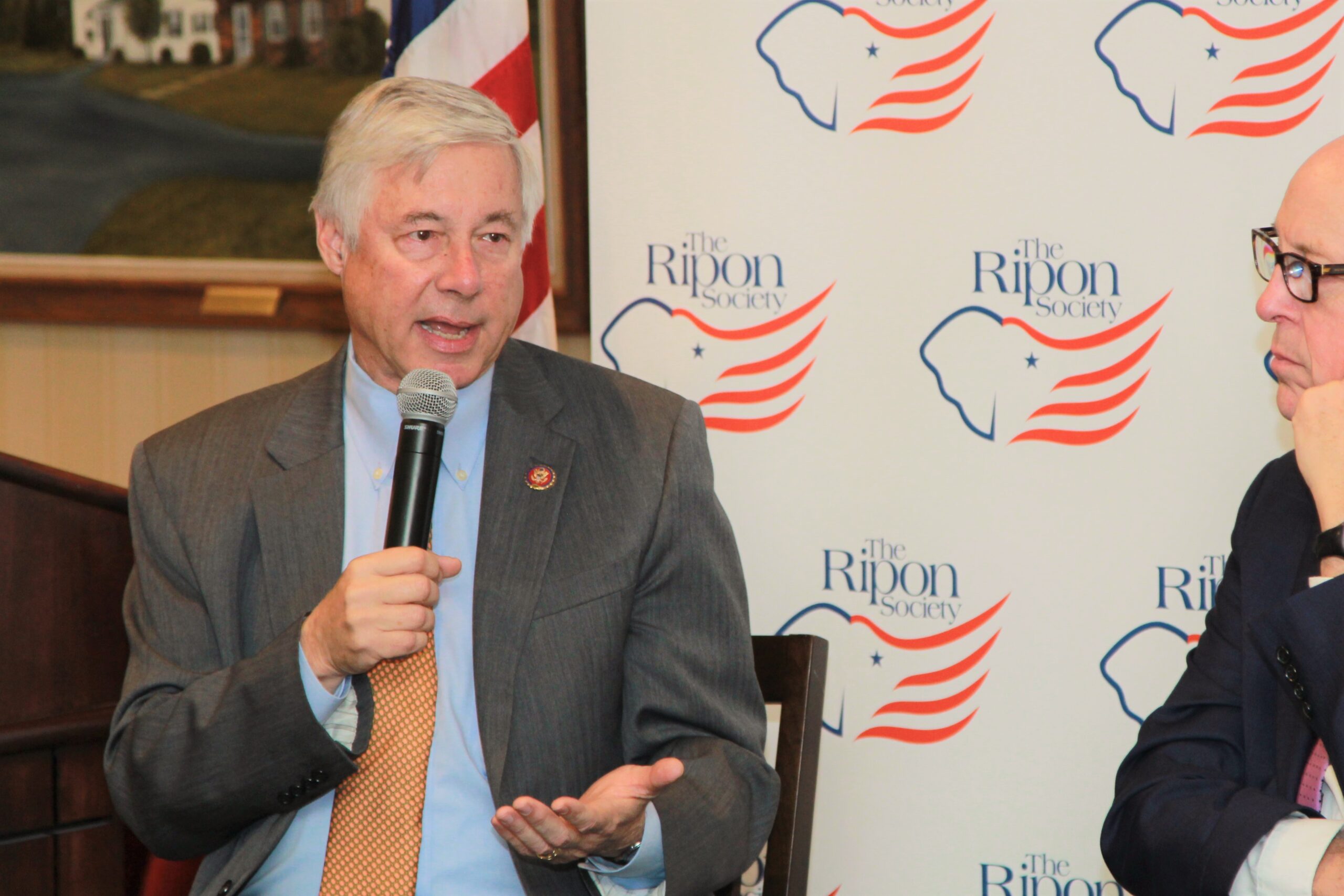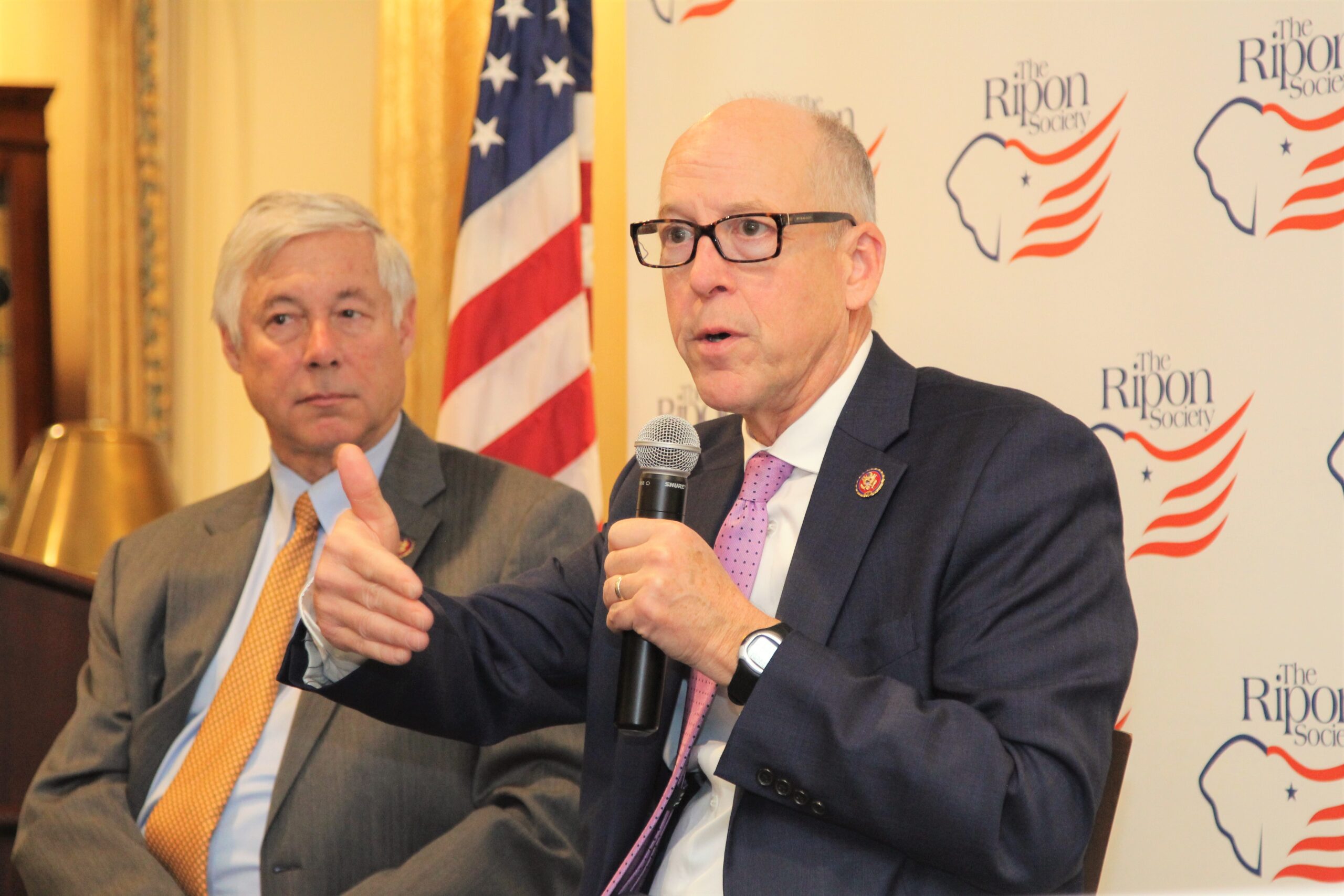 Upton and Walden Look at the Future of American Health Care Innovation
Upton and Walden Look at the Future of American Health Care Innovation
WASHINGTON, DC – In remarks yesterday before a breakfast meeting of The Ripon Society, U.S. Reps. Fred Upton (MI-6) and Greg Walden (OR-2) talked about the current state of health care policy in America, and what Congress can do to promote innovation.
Kicking off the discussion was Upton, a veteran lawmaker and long-time leader in the House Committee on Energy and Commerce.
“One of the highlights of course during my tenure as Chairman was the enactment of 21st Century Cures, which Mitch McConnell labeled as the most important piece of legislation that was enacted in that two year period,” the Michigan Republican stated. “We passed it out of committee 51 to nothing. I can tell you the three people that weren’t there, but it was just a mistake on their part. We passed it on the House floor 392 to 26.”
The 21st Century Cures Act was signed into law in December 2016, and served as a bipartisan initiative to speed up the process of bringing new, lifesaving drugs and medical devices to market. Three years later, results are starting to be seen.
“I met with a pharmaceutical company not too long ago, I’m going to meet with them again in fact in two weeks, and they have a drug that is just remarkable as it relates to pancreatic cancer. That’s the hardest one.”
“This new drug is in trial for the first 36 people with stage-four cancer, 22 people now were cancer free. It should be like three or four and now there are more than that – that’s one of the things that we did.”

Upton provided another example.
“Cystic fibrosis (CF) – we did a lot of roundtables all over the country as we did 21st Century Cures. Visited universities – you name the group and we were there. We had a young boy, a high school student from here, and he came in and he talked about having CF and what he had to endure to get up and ready for class, knowing that he was going to be losing 15% of his lung capacity every year. I can remember 20 years ago most CF folks lived to their mid-twenties and now you’re going to be probably into your forties and this new drug that just got approved literally in the last couple of weeks lowers that by 90%. So you still have the 10% of the folks that it’s not going to work and we need to find a cure. But it’s incredible what is really happening.”
As Congress turns toward further action on prescription drugs, Upton warns that proposed legislation by Speaker Pelosi undermines progress made so far, hindering innovation going forward.
“Let’s face it, we’re the only country in the world that can do this, which was one of the reasons why we need to make sure that H.R. 3 doesn’t move forward, because even the CBO said that if this bill goes through we’ll probably lose 8 to 15 drugs a year that may not ever happen. That’s not acceptable for the disease groups that we know we want to keep that money for innovation. We really want to find these, and when we do, what is it that we could do to take the barriers down as fast as we can? That will be our goal.”
Echoing his colleague’s point, Walden expressed his concern for H.R. 3 and current Democratic initiatives being proposed.
“This revolution in medicine is remarkable,” the Oregon lawmaker declared. “We know we play a small part of it with what we do to help the basic research through NIH and all. It is an incredibly important part, but it is a small part compared to what the companies go and do with your great innovators. I think that the thing going forward I’ve focused on is, as a country and as public policy makers, the real issue we haven’t figured out is how to pay for it. And the Democrats have come forward with this H.R. 3 which just says ‘Put European-style pricing in place.’”

Walden serves as the Ranking Member for the Energy and Commerce Committee, which has been ground-zero for health care policy debate in the House of Representatives. The Committee has seen bipartisanship as of late while working to find ways to combat the opioid crisis, but has experienced division when it comes to the Speaker’s progressive drug pricing plan.
“It’s just like Google and Facebook. They came about because we have light touch regulation. They didn’t have to go get a permit or permission from a government agency to create Facebook or a search engine or the latest app. And that’s what really America’s strength in my perspective is. Yes, there’s room for regulation, don’t get me wrong, but we need to keep a light touch and minimal where we can so we are able to stop bad behaviors where they occur. But, we need regulation not so intrusive that you shut down those great minds and entrepreneurs and the next group of startups in a garage somewhere, because it will occur in medicine as medicine moves into the digital age for us.”
One particular area Walden pointed to in order to explain the kind of innovation occurring today was precision medicine and the ability to curate medication from individual to individual through genetic analysis.
“They’re now using the supercomputing capability of our national labs to go back through some failed tests and drug trials to see if in certain populations, now that we’ve decoded the genome, did that medicine actually work? In other words, while it worked in only 10 of a 100 in the past, we now know about precision medicine and that it may actually be a treatment that works for those 10 people.
“That gets back to my point, how do you pay for it? How do you pay for a drug that only affects you? As a country, set politics aside, we’ve got to get our hands around that so that we can lead the world in this development and figure out how we’re going to pay for it.”
The remarks wrapped up with Walden reflecting on the work done by Congress to address the opioid crisis. Though plenty of work has been done, there is still a need for federal action to combat the national epidemic.
“I’d say that we did a lot of work in the last Congress addressing one of the biggest drug epidemics in America – that’s the opioid epidemic – with thousands of people dying. We’ve finally sort of plateaued in terms of the death rates. Part of that is because NARCAN is out there, so our first responders and others are able to reverse the overdose. We’re getting treatment money into our communities, we’re working on new research there to have non-addictive pain medications and treatments and modalities.
“There’s a lot more work to be done there but I would argue that H.R. 6, the Support Act, which I led last Congress, was one of the biggest bipartisan attempts to deal with a drug epidemic in our nation’s history. We know we have more work to do there. The thing I like about how Fred Upton leads is that after you pass a law, we need to go back and take a look at it. As he said, ‘What’s working and what’s not? What did we get right and what did we get wrong?’ So we can get the next product out and do even better.”
To view Upton’s and Walden’s remarks before The Ripon Society yesterday, please click on the link below:
The Ripon Society is a public policy organization that was founded in 1962 and takes its name from the town where the Republican Party was born in 1854 – Ripon, Wisconsin. One of the main goals of The Ripon Society is to promote the ideas and principles that have made America great and contributed to the GOP’s success. These ideas include keeping our nation secure, keeping taxes low and having a federal government that is smaller, smarter and more accountable to the people.



